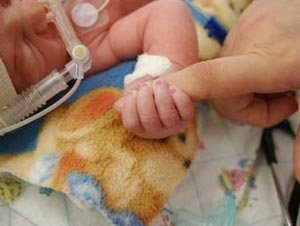
Birth Defects The Primary Cause Of Infant Deaths. Birth defects affect nearly one in every 33 babies born in the United States each year. Birth defects are the primary cause of infant deaths, accounting for more than 20%. Babies born with birth defects have a larger chance of illness and long-term disability than babies without […]

Birth Defects The Primary Cause Of Infant Deaths. Birth defects affect nearly one in every 33 babies born in the United States each year. Birth defects are the primary cause of infant deaths, accounting for more than 20%. Babies born with birth defects have a larger chance of illness and long-term disability than babies without birth defects. Birth defect occur while a baby is developing in the mother’s body. Birth defect can be discovered up to one year of birth, with the majority of birth defects detected within the first 3 months of pregnancy. The severity of birth defect can range from mild, where a surgery can correct the birth defect or to serious, leading to death.
 Birth defect can affect almost any part of a baby’s body. Approximately 1 out of every 100 to 200 babies born each year are diagnosed with a heart defect. Brain and spine defects are other regular birth defect. These birth defects affect an estimated 1 of 1,000 pregnancies. Brain and spine birth defect are less frequent than heart defects, but they often cause many fetal and infant deaths. Birth defect of the lip and roof of the mouth are also common. These types of birth defects, are known as orofacial clefts, and consist of cleft lip, cleft palate, and combined cleft lip and cleft palate. Cleft lip is more common than cleft palate.
Birth defect can affect almost any part of a baby’s body. Approximately 1 out of every 100 to 200 babies born each year are diagnosed with a heart defect. Brain and spine defects are other regular birth defect. These birth defects affect an estimated 1 of 1,000 pregnancies. Brain and spine birth defect are less frequent than heart defects, but they often cause many fetal and infant deaths. Birth defect of the lip and roof of the mouth are also common. These types of birth defects, are known as orofacial clefts, and consist of cleft lip, cleft palate, and combined cleft lip and cleft palate. Cleft lip is more common than cleft palate.
Hypospadias is a birth defect that is considered non-life threatening. Babies with hypospadias, the opening of the urethra (where urine comes out) is not at the tip of the penis but on the underside. Treatment depends on how far away from the tip the opening is and can involve complex surgery. This defect is rarely as serious, but it can cause great concern and sometimes has high medical costs. It seldom causes death.
Close to 3% of babies born each year in the United States suffer from birth defect. Women over the age of 35 years have a greater chance of having a child with Down syndrome than women who are younger. Certain prescription drugs taking during pregnancy can increase the chance of birth defect. The following are some drugs that can cause birth defect: Accutane, Crestor, Cytotec, Lamictal, Lexapro, Paxil, Soriatane, and Terbutaline. Lastly some women have a higher chance of delivering a baby with a birth defect because someone in their family had a similar birth defect.
If you or a loved one has taken a prescription medicine and given birth to a child with a birth defect, please fill out the form at the right for a free case evaluation by a qualified defective drug attorney or call us at 1-800-YOURLAWYER (1-800-968-7529).


